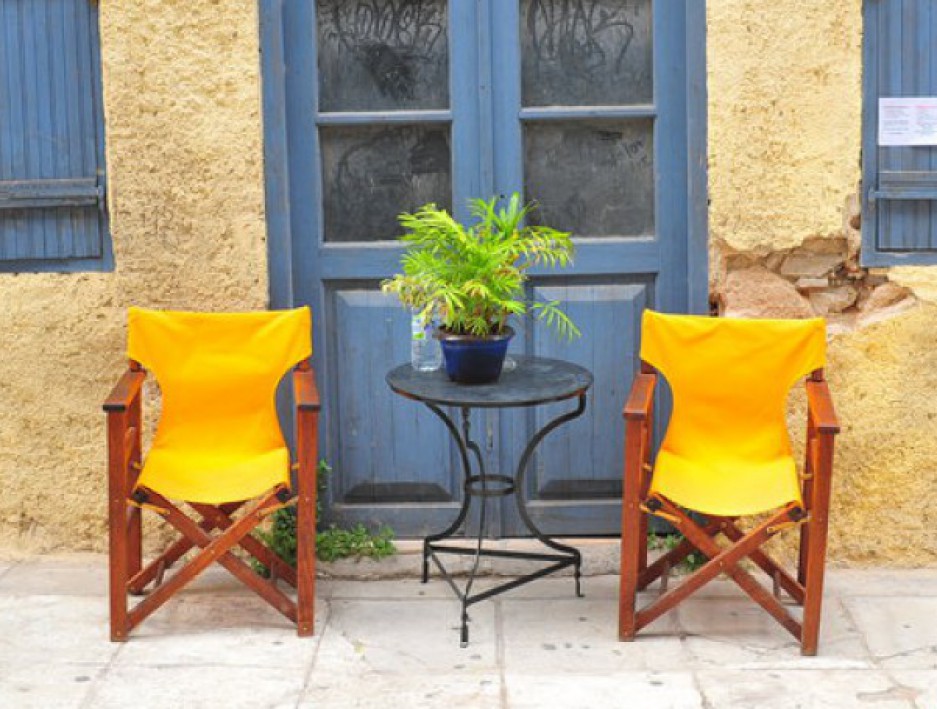
In the news today I learnt that a wanted man has just handed himself in rather than spend any more time with the people he lives with in lockdown. Sussex police revealed the man said he’d rather be in prison. Those people he lives with must be really awful if he’d prefer to hang out with psychopaths, bullies and the deeply traumatised. I suspect that after a while in jail he might regret this decision, life there being the apotheosis of repetition and restriction.
Some people are loving lockdown but most of us are having difficulties with the limitations of the current state of affairs. Not knowing when it will end makes things worse – at least in a British prison, you’d know your sentence, and might even reduce it with good behaviour. No such luck with Covid. So much possibility has been denied us, so much hope, because we don’t know exactly when our freedom will arrive. Yes, there are vaccinations happening, but it’s increasingly clear that they won’t eliminate Covid-19 completely or imminently. Our mental health thrives on having dates in the calendar that we look forward to, but diaries for last year and this show lots of scorings out of cancelled exciting activities. Not being able to travel very far from home for many months has had a sapping effect. Depression, boredom, stress, frustration and shortened tempers abound. Our worlds have shrunk and we are smaller, pettier people.
I was sitting on a bench overlooking the Thames with my walking partner, and a policeman observed that he was glad to see we were taking a short break in between exercising. He was cheerful enough but his tone belied the warning message of authority: even the time you take sitting on a public bench is limited by law – you must go back to your homes as soon as possible, the need to gaze at a large body of moving water notwithstanding. Do not misunderstand me – I am a lockdown supporter: the number of people catching and dying from Covid-19 is down due to its implementation. But I can still bridle at the downsides and its effect on my body and mind.
Our physical bodies can be cramped by living in one environment and using our spine and limbs in the same ways over and over again, sitting on the bed or the same chair every day, moving around small flats with not enough room to dance or even stretch without kicking the cat or a small child. For every one of us who has a home gym and a jogging habit, there’s another five who’ve taken to slumping glassy-eyed in front of a screen, hungrily seeking some sort of redemption in there, vertebrae crushed and temples throbbing. When we move from one place to another, our bodies use a wide range of motion and benefit in flexibility and improved organ function. Nothing resembles swimming quite like swimming but municipal pools are barred; without the stairs and escalators of normal active everyday life, our hearts quietly atrophy.
The suffering of our bodies adds to the mental load of grief. Those precious daily walks need taking as they really do improve mental well-being, connecting us to nature and letting us see the scale of the world still available to us. Taking some time to watch the clouds scudding across the vast sky expands us and lifts us. When we are continually indoors, we are missing out on fully using our senses – outdoors we can give greater exercise to sight, smell, sound, touch (there’s no legislation against hugging a tree), and even taste (that flask of coffee and a homemade flapjack can be extra delicious as the wind whips round your bobble hat). Without varying perspectives and a sense of spaciousness, bodies close up and so do minds. Even with all the tools of information available to us, I have heard many people talking about boredom or feeling stuck or not being able think. Our imaginations have become circumscribed – and imagination is so important it can keep a person in restricted circumstances alive. Terry Waite, held hostage in solitary confinement for four years, composed stories and poems in his head and emerged with his sanity intact. Our repeated recourse to TV and Netflix dramas in lockdown means we are being spoon-fed stories rather than creating them ourselves. Much though I love a filmed drama, I’m aware that in bingeing on them, my grey matter is missing opportunities to imagine my own stories, with the healthy mental challenges and problem-solving that entails. You don’t need to write stories if that’s not your bag but notice how not being able to dream or fantasise about exciting things that might come true can contribute to a gloomy, closed state of being.
Like the wanted man, we can be driven mad by being cooped up with others who would normally be out and about for most of the day. Some lucky people with ample household room and warm, easy-going personalities might be loving having their families or flat-mates so close at hand, but most people will have times they want to howl at the moon because Andy keeps sniffing or Debbie’s used the wrong saucepan three days in a row. In other lockdown lives, a solo dweller could be loving the peace and freedom of solitude or conversely feel like Rapunzel trapped in a tower with no sign whatsoever of a prince arriving to climb up her hair (though grateful for the occasional brief appearance of an Amazon delivery man).
Some antidotes to despair can be found in assessing the benefits of this strange way of life – appreciating lockdown’s effects on the greater good, enjoying the freedom you can have in your own home, having more time to play with.
And here are some specific ways you can break out of your shrunken world:
- Like William Blake, fully explore the microcosm, not the macrocosm, “See the world in a grain of sand/And heaven in a wild flower”
- Turn the radio onto a music station and let the sounds transport you to other realms
- Slather your naked self in body lotion and say hello to all the nooks and crannies of your form (or do the same for someone else).
- Take half a day to follow a recipe for an exotic dish very closely
- Watch a travel documentary instead of the news or drama
- Go out for your permitted strolls at different times of the day and night (at dawn, for once, or on a night of full moon, or twilight…)
- Paint one entire room a different colour (a proper colour, not just another shade of grey)
- Give yourself a theme for taking phone-photos e.g. Mysterious Sights, Red Things, Ghost Signs
- Become pen-pals with someone you know abroad
- Have a check-in Zoom circle with friends where each person speaks uninterrupted for 5-10 minutes and the rest just listen. Little windows into other’s worlds can be inspiring or consoling
- Make a map of an imaginary place
- Dedicate a day to smelling things and seeing what emotions or memories come up
- Rearrange the furniture
- Walk down a street you’ve never been down before
- Study one famous painting very thoroughly
- Perch in a public place and make up names and little biographies for people who pass by (dogs included)
- Buy a food item you never usually eat
- Have a walk with a bubble-friend and take it in turns to direct ‘Left’ or ‘Right’ at each junction
- Dress up in some of your neglected lovely clothes to work at home or have dinner en famille
- Aim to achieve small victories, and recap them at the end of the day
When you look back on these most unusual months, it will be these things that you remember, not the constrictions….
You have it in your power to expand your locked down world.


 Children chat to friends, social-distance style. Photo: Alison Goldie
Children chat to friends, social-distance style. Photo: Alison Goldie






